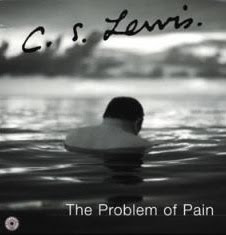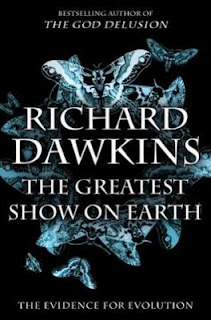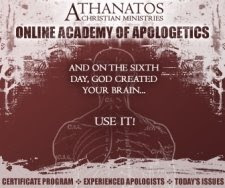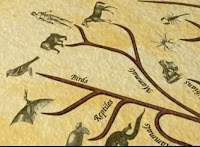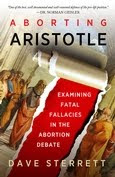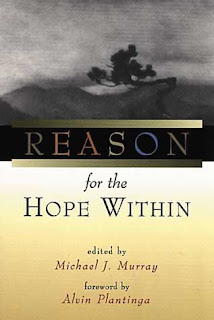 Reason for the Hope Within
Reason for the Hope Within edited by Michael J. Murray is a remarkably rich book. It is diverse in its scope, covering a wide spectrum of philosophical issues. Murray points out the goal of the book: “The aim of this book is to take what has been happening in the halls of academic Christian philosophy and make it accessible and useful to church leaders and laity.”
1 A dozen or so philosophers contribute essays to accomplish this goal. Because this book addresses such a wide variety of topics, this review will be a general overview of the content with a notable highlights. In fact, an entire review could be dedicated to each one of these deeply thoughtful philosophical chapters.
Murray’s introduction encourages the reader to move slowly through the book, considering the issues deeply. The issues are weighty and they are treated with appropriate philosophical depth. From an apologetic perspective, a fair amount of emphasis is placed on the honest scope of apologetics: what apologetics
can’t do and what apologetics
can do: “…there is no sledgehammer apologetics. There are no arguments for the truth of Christianity which force the atheist or non-Christian to their intellectual knees. The unbeliever can always backtrack and give up some other belief instead.”
2
William C. Davis, introduces the theistic arguments, pointing out their scope and usefulness:
Belief in God, like any belief, is rationally avoidable, and a determined skeptic will always be able to find a reason – even if somewhat implausible – for persisting in unbelief. […] Arguments for God’s existence are useful, but it is important to be clear about how they are useful. Ultimately, arguments are never more than tools used by the Holy Spirit.3
Davis’ handles the theistic arguments carefully, and shows just how far they go and where they end. He doesn’t try to prove too much. He acknowledges that there is always a “way out” for the skeptic, however implausible. He addresses the common objection that certain theistic proofs aren’t good enough to prove the Christian God of the Bible:
At the heart of this objection is the claim that the Christian idea of God can’t be constructed from the details of our experience. And this is clearly correct! A finite creation cannot require an infinite or eternal creator as its cause. But why think that we need to construct our idea of God only from the uncontroversial facts of this world? This objection is ultimately an attempt to change the subject. The issue is not whether it is possible to assemble our idea of God; rather the real issue is whether the God we know from the Scriptures provides the best explanation for the facts of the world.4
The theistic argument from the fine-tuning of the universe is presented and developed by Robin Collins. His premises follow:
Premise 1. The existence of the fine-tuning is not improbable under theism.
Premise 2. The existence of the fine-tuning is very improbable under the atheistic single-universe hypothesis.
Conclusion: From premises (1) and (2) and the prime principle of confirmation, it follows that the fine-tuning data provide strong evidence to favor the design hypothesis over the atheistic single-universe hypothesis.5
Collins underscores the objective of the argument:
the argument does not say that the fine-tuning evidence proves that the universe was designed, or even that it is likely that the universe was designed. […] Rather, the argument merely concludes that the fine-tuning strongly supports theism over the atheistic single-universe hypothesis.6
An excellence appendix accompanies this chapter, exploring probability calculus and providing further support for the second premise.
Daniel Howard-Snyder addresses “God, Evil, and Suffering.” He splits the issue into two parts: the practical problem of evil and the theoretical problem of evil. Anyone reading this chapter (not to mention most of the other chapters in this book) will be introduced to the most relevant issues in contemporary philosophy of religion.
John O’Leary-Hawthorn contributes an essay on
Arguments for Atheism in which he explores two categories. First, what he calls “No evidence arguments,” and second, “Arguments from the character of religion.” These sorts of categories include the accusation of lack of evidence, the concept of divine silence, evil done in the name of religion, religious diversity, and the psychological origins of belief.
Caleb Miller provides his essay on
Faith and Reason. Deals with the rationality of belief and religious epistemology. Regarding religious experience and epistemology, he says that if one has a particular religious experience, “it is rational for me to accept the corresponding beliefs unless there is an undercutting or overriding defeater of those beliefs, i.e., unless there is some good reason for thinking that my experience is illusory or that the beliefs are false.”
7
Again it can be emphasized that the scope of essays in this book is very impressive:
Pluralism by Timothy O’Connor,
Eastern Religions by Robin Collins,
Divine Providence and Human Freedom by Scott A. Davison. Thomas D. Senor addresses philosophical issues surrounding the trinity. Trenton Merricks writes on
The Resurrection of the Body and the Life Everlasting. He unpacks the concepts of immortality and the resurrection body. Michael J. Murray contributes another essay, this time dealing with heaven and hell. He presents and compares the “penalty” model and the “natural consequence” model. Indeed, not chapters to read quickly or superficially.
W. Christopher Stewart focuses his essay on religion and science. What is their interaction as ways of knowing? Does science defeat religion? He refutes the god-of-the-gaps argument, while pointing out that serious Christians should strictly avoid that sort of thinking. He also elaborates on another argument, namely, that science defeats religion by excluding it. He points out that science presupposes
methodological naturalism,
not metaphysical naturalism – and methodological naturalism does not in any way exclude religious belief. The rest of this chapter is an excellent exploration of the so-called conflict and of scientific and religious presuppositions.
J. A. Cover dedicates a chapter to miracles and Christian theism. He defines miracles, examines what reasonable belief in miracles requires, and answers objections from Hume and others. He continues by looking at epistemological questions of miracles and evidence. The final two chapters of the book cover the topics of Christian ethics (by Frances Howard-Snyder) and the authority of scripture (by Douglas Blount). These too are both excellent treatments of the contemporary issues in these areas.
As this quick overview has shown,
Reason for the Hope Within is an expansive philosophical book, written by excellent philosophers, yet accessible to the layman. This book is highly recommended for the thinking Christian and student of apologetics.
1 Michael J. Murray, in Reason for the Hope Within (Grand Rapids, MI: Eerdman’s Publishing Co., 1999), p. 3.
2 Ibid., p. 13.
3 William C. Davis, Ibid., p. 21.
4 Ibid., p. 35.
5 Robin Collins, Ibid., p. 53.
6 Ibid.
7 Caleb Miller, Ibid., p. 145.
 Dinesh D'Souza presents this talk entitled: How to Speak to an Atheist. Check out his book: What's So Great About Christianity. His latest book is Life After Death: The Evidence. D'Souza is an avid debater and has debated Christopher Hitchens and other leading atheists.
Dinesh D'Souza presents this talk entitled: How to Speak to an Atheist. Check out his book: What's So Great About Christianity. His latest book is Life After Death: The Evidence. D'Souza is an avid debater and has debated Christopher Hitchens and other leading atheists.




